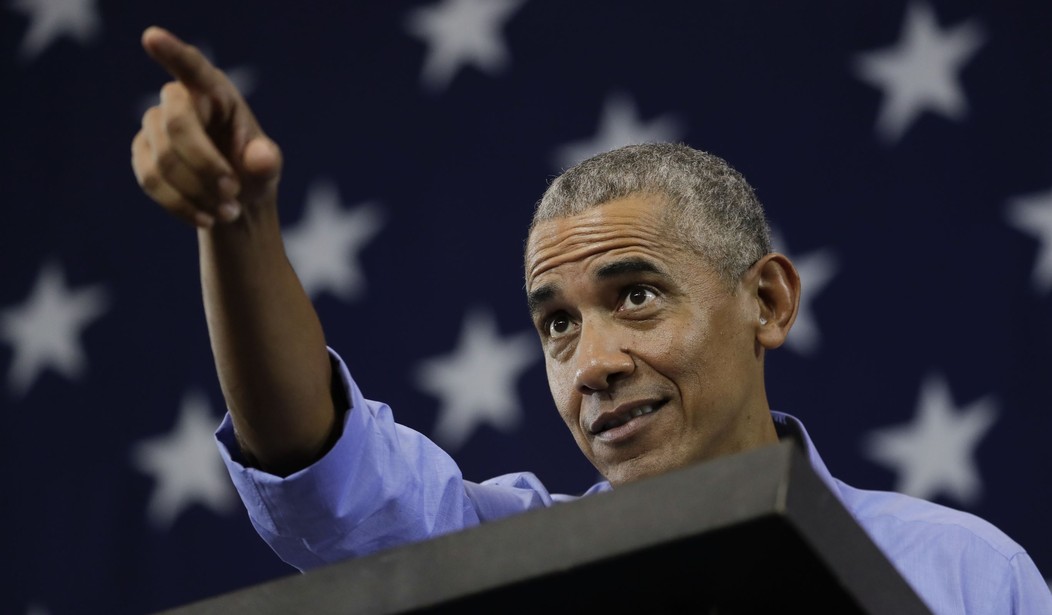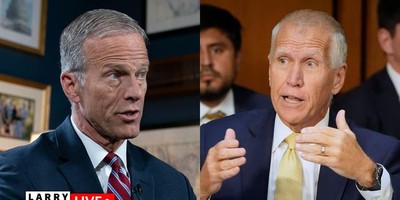I've spent much of the last year promoting, debating and -- let's just be honest -- hawking my latest book, "Suicide of the West: How the Rebirth of Tribalism, Populism, Nationalism and Identity Politics is Destroying American Democracy."
An interesting pattern has developed. Of the terms in the subtitle, everyone from my friends in right-wing talk radio to invariably polite liberal NPR hosts -- and the audiences that listen to each of them -- agrees that "tribalism" is bad. I think it's because no party or faction has adopted the term, so each side thinks only their opponents are guilty of it. Similarly, liberals tend to be sympathetic to the idea that populism is bad, largely because they so closely associate it with Donald Trump, though a few remember that Bernie Sanders is a populist, too, and so want to offer caveats about "good" populism and "bad" populism. The same holds for conservatives, only in reverse.
On nationalism, I get the most pushback from the right and the least from the left.
On identity politics, it's the other way around. It's hard for many liberals to understand (or at least admit) that there might be something pernicious about dividing everybody up into categories of race, sex, ethnicity, etc. Meanwhile, many on the right struggle to see how their side might be guilty of doing the same thing.
Because I've been so mired in these conversations for so long, I'm always intrigued when someone from the other team, or tribe, breaks the pattern.
Enter former President Barack Obama. This week he said something very interesting. At an event celebrating the 25th anniversary of the Baker Center at Rice University, Obama decried "politics based on a nationalism that's not pride in country but hatred for somebody on the other side of the border. And you start getting the kind of politics that does not allow for compromise, because it's based on passions and emotions."
Recommended
Former Secretary of State James Baker interjected, saying, "It's identity politics."
To which Obama responded: "Which is why, by the way, when I hear people say they don't like identity politics, I think it's important to remember that identity politics doesn't just apply when it's black people or gay people or women. The folks who really originated identity politics were the folks who said three-fifths clause and all that stuff. That was identity politics. ... Jim Crow was identity politics. That's where it started."
Obama is right -- with two caveats. The three-fifths clause of the Constitution, which held that blacks in slave states be counted as three-fifths of a white person for purposes of representation in Congress, is widely misunderstood (though of course it was part of the larger evil of slavery). It was the slaveholders who wanted slaves to be counted as whole persons. The anti-slavery forces, mostly in the North, didn't want them to be counted at all, because to count slaves as citizens would empower the slave states.
Second, the framers didn't "start" identity politics -- it's been around for thousands of years. Aristocracy was among the first, and most pernicious, forms of identity politics. It derives from the Greek word aristokratia, or "rule of the best-born." It held that some people were simply born better than others. Some humans were "slaves by nature," according to Aristotle, and for thousands of years all around the world, people believed that lower orders, or castes, were born to be peasants, serfs, slaves, etc., and other people were born to be rulers.
Where Obama is right, however, is more important than where he is wrong. Slavery and Jim Crow were indisputably manifestations of identity politics. America's system of legalized racism was just another form of aristocracy under a different name. And as such, it was a violation of the best ideas of the founding. Perhaps the single most radical thing about the American Revolution was the decision to reject all forms of hereditary nobility.
It took longer -- far too much longer -- to recognize the rights and dignity of all Americans, but the idea that you should take people as you find them, and judge them not as a member of a group but as individuals, remains perhaps the greatest part of the American creed, regardless of whether you're a liberal or a conservative.

























Join the conversation as a VIP Member